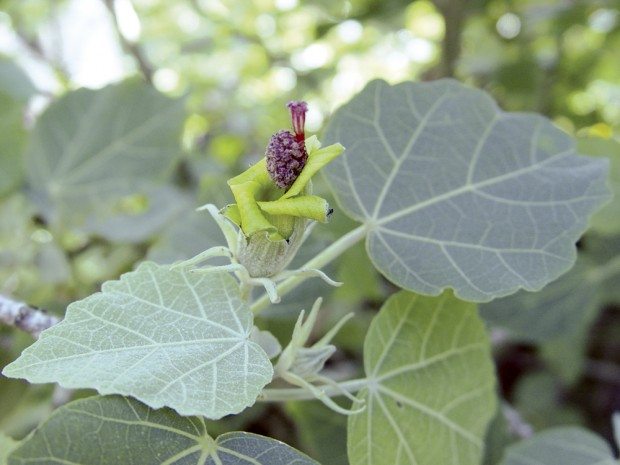LIHU‘E — U.S. senators Daniel Akaka and Daniel Inouye on Thursday announced the National Science Foundation is awarding three grants worth $1.4 million to help scientists create a digital catalog and standardized list of Polynesian and Micronesian plants. “This is
LIHU‘E — U.S. senators Daniel Akaka and Daniel Inouye on Thursday announced the National Science Foundation is awarding three grants worth $1.4 million to help scientists create a digital catalog and standardized list of Polynesian and Micronesian plants.
“This is something that we’ve been dreaming of, trying to create, but none of us had the resources to make it happen,” said Chipper Wichman, director and CEO of Kaua‘i’s National Tropical Botanical Garden.
“Now it’s going to happen,” he said.
Wichman said that for over three years he has been in talks with Honolulu’s Bishop Museum, University of Hawai‘i and researchers throughout the Pacific, trying to create a digital catalog of plants located in the Pacific region.
He said the idea is to make all those plants available as a “virtual herbarium,” so researchers anywhere in the world can have access to these plants.
The money will fund the creation of the Consortium of Pacific Herbaria, a collaboration between Kaua‘i’s NTGB, Bishop Museum, UH, and researchers in American Samoa, Samoa, Tonga, Palau, Guam and Fiji.
“It’s a very ambitious project,” Wichman said. “It’s very exciting to see the partners that have joined together to work on this.”
Wichman said NTBG’s share of the grants is $321,000.
“That’s a lot of money. We’re very, very thankful we got it,” he said.
Bishop Museum will receive $691,000 and UH will receive $431,000, according to Wichman.
The Pacific region is a critical hot spot for biodiversity, home to over 5,000 vascular plants found nowhere else in the world, Wichman said.
“By bringing these various components together into a virtual herbarium, it’s going to make our job, in terms of understanding what plants exist in the Pacific, much better,” he said. “Also, it’s going to help us in being able to set up research projects and conservation projects that help deal with global warming and the challenges that we face.”
Both senators from Hawai‘i praised the grant from NSF.
“The research and study of Pacific plant life has advanced evolutionary science, medicine, and cultural preservation. The work of this consortium of proven leaders in the study of tropical botany will cultivate further progress,” Akaka said in a press release.
“Plants provide much more than aesthetic appeal. They can help us understand more about the makeup of our ecosystems, the evolution of our species and lead to important advances in medicine and science,” Inouye said in the release.
The major goals of the CPH include curating and digitally imaging nearly one million dried plant specimens from Polynesia, Micronesia and Fiji, creating a standardized plant checklist, and making collections data and digital images available online through a single portal, the release stated.
Classes in herbarium curation will be offered to college students in Hawai‘i, and employment opportunities will be made available in herbaria to native Pacific Islanders, the release stated.
Identification workshops will be offered to professional biologists in the region, focusing on five common plant families that pose particular challenges for identifying Pacific species, according to the release.
“Our region of the world is home to thousands of unique and beautiful plant species that are found nowhere else in the world. By building a comprehensive database we allow everyone, from botanists to school children, access to information about the native flora that populates the Pacific Rim,” Inouye said.
Wichman said the work to better understand the Pacific ecosystem and to classify and protect the plants is “critically important” for the whole world.
“I’m thrilled that the island of Kaua‘i has a role in that through the work that we’re doing in here,” Wichman said.
• Léo Azambuja, staff writer, can be reached at 245-3681 (ext. 252) or lazambuja@kauaipubco.com.


